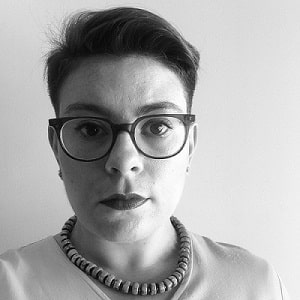We are unstoppable /
So here we are. I’ve resisted blogging post-HLS because 1) two rounds of graduate school killed my enjoyment of writing, 2) I have a preconceived idea of what a “library blog” looks like and I haven’t the enthusiasm to be a “library blogger,” and 3) I feel uncomfortable with the notion of having an audience. I was poised to hammer out yet another tweet-storm, though, and nobody wants that, so… here we are.
Today Emily Drabinski shared some thoughts on fake news and information literacy. Go ahead and read her timeline, as well as Ian J. Clark’s excellent post. I’ll wait.
Now thinking the librarian skills most useful right now are not infolit but as organizers and knowledge infrastructure builders.
— Emily Drabinski (@edrabinski) February 8, 2017
My gut reaction to the above tweet was an emphatic YES. I want to hold onto that YES in this post, but I also want to walk it back a bit. I want to hold onto that YES because being an organizer and a knowledge infrastructure builder is my librarian skill. It’s a whole other post, but my belief in the value of being a builder and repairer of knowledge infrastructure fuels my sense of professional purpose and is a core tenet of my library worldview. So again, I say: YES.
But also… no. Information literacy has become something of a buzz phrase of late, particularly in the wake of the Framework revisions, and it’s easy to feel resentful that other aspects of librarianship don’t garner as much attention. When the spotlight finally falls to less-buzzy areas of the field, the gut reaction is a gleeful, and rather vindicated, YES. We librarians live to be of use, and we all want to hear that our corner of librarianship is the “most useful.” This framing, though, obscures the reality that our broken-seeming world needs all the librarian skills to fix it.
Yesterday I re-read Umberto Eco’s brilliant – and regrettably timely – 1995 essay “Ur-Fascism.” Go ahead, read it. I’ll keep waiting. In it, he acknowledges the specificity of twentieth-century regimes while identifying 14 core traits around which fascism might “coagulate.” Instead of drawing partisan lines around what the “real” work of librarianship is in this specific moment in the life of the polis, I suggest that what is “most useful” is an Ur-Librarianship, analogous to what Andy Woodward dubbed “big tent” librarianship (hat tip to Britt Foster’s inaugural post for Hack Library School) and what Erin Leach and Rachel Fleming have called the Unified Library Scene. If we don’t hang together we shall surely hang separately, is what I’m saying.
What are the defining features of Ur-Librarianship? We have, for better or worse, tried to distill them in our Code of Ethics, and a resounding theme of this year’s Midwinter meeting was bringing everything back to those core values to advocate for our work both within and without of the library world. I haven’t thought about the matter enough to propose my own fourteen points. But I do think that one point, around which librarianship might coagulate, is the shared – and urgent – vision that Another world is possible.
China Miéville, in his introduction to Verso’s quincentenary edition of More’s Utopia, calls it “hope with teeth,” and it’s my own second core tenet. To hope with teeth is to let our belief in the project of human civilization and our frustration at the status quo get at one another destructively and generatively. It is to be certain that another world is both necessary and possible, and to try to achieve it by any means at our disposal.
We see a world in which citizens know how to tell good information from bad. We see a world in which information is ordered more justly and inclusively. We see whole new information architectures rise before our eyes. We see a world that none of our skills can build alone, but which all of our skills can build together. And that, friends, is the most useful thing.
